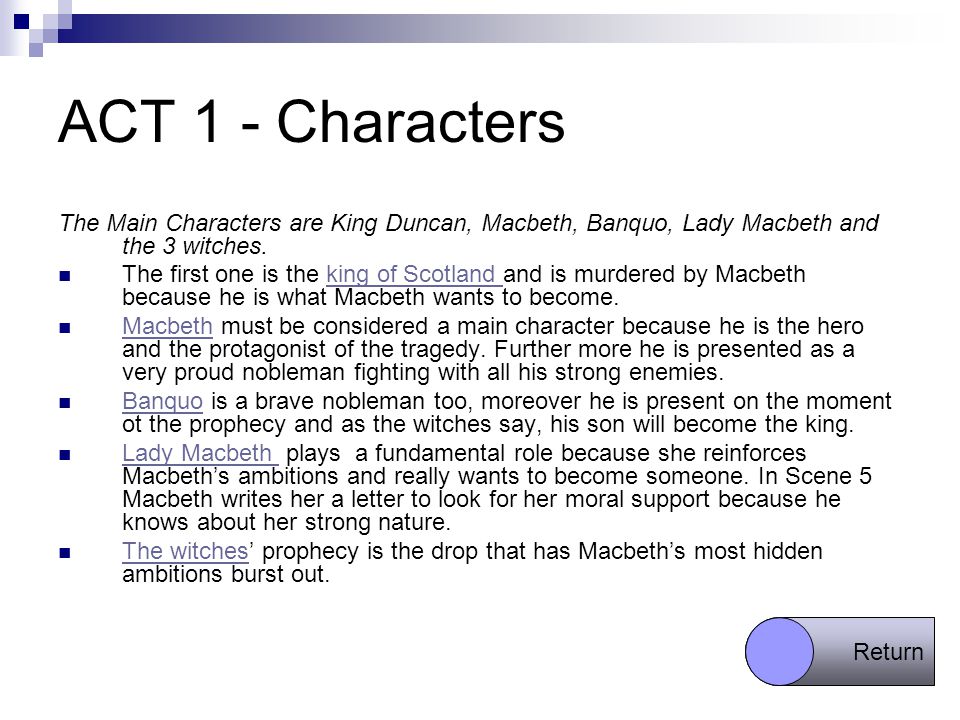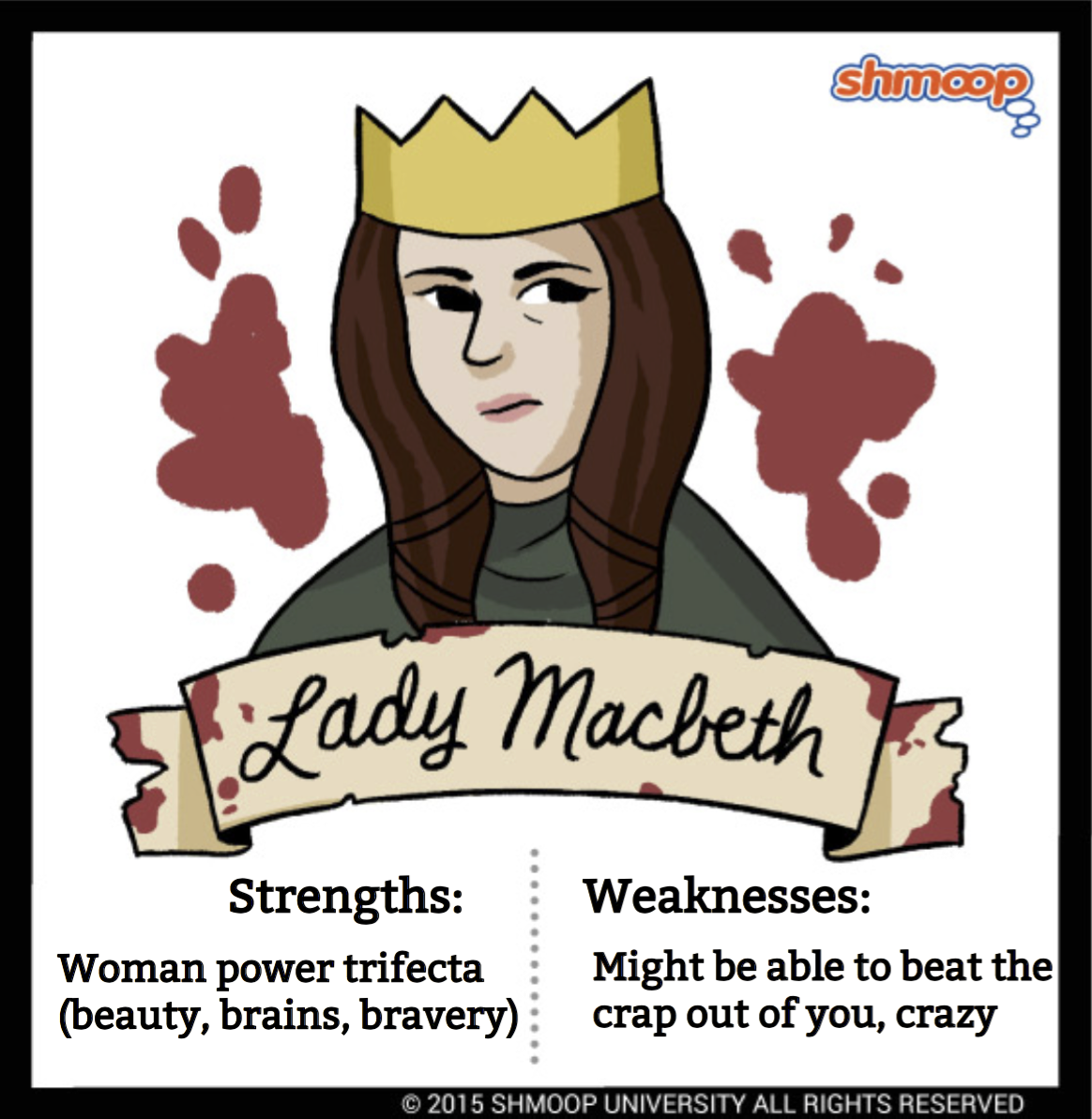Lady macbeth character analysis act 1

Lady Macbeth is even more ambitious and ruthless than her husband. As soon as an opportunity to gain power presents itself, she has a plan in mind.

She uses her influence to persuade Macbeth lady macbeth character analysis act 1 they are taking the right course of action and even /essay-on-earthquake-in-pakistan-2005-in-urdu.html part in the crime herself.
For a while she is able character analysis act suppress her actions but eventually lady macbeth character analysis act 1 becomes unable to deal with the guilt of what she has done. She becomes unable to sleep, and mentally unstable, eventually dying in tragic circumstances. In both Shakespeare's time and in the time when the play takes place, women had a much lower status than would be the case today. Wives were little character analysis act than the property of their husbands and had no legal rights.
Their main purpose was to have children and support their menfolk.
Characters
Lady Macbeth appears to be a much more feisty character with ambitions analysis act desires of her own; these are characteristics article source could imply a lack of femininity. It is worth remembering lady macbeth character analysis act 1 in the original performances of the play lady macbeth part of Lady macbeth character Macbeth would have been played by a man and this would have helped to emphasise the character's masculine qualities.
What are we told here about Lady Macbeth's character? How to analyse the quote: Stop up th'access and passage to remorseThat no compunctious visitings of nature Shake my fell purpose, nor keep peace between Th'effect and it! Come to my woman's breasts, And take my milk for gall, you murd'ring ministersWherever in your sightless substances You wait on nature's mischief. How to use this in an character analysis act Lady Macbeth has just learned her husband's news about the Witches' predictions and that King Duncan will be staying with them that very night.
In this respect she is very much like the Witches casting a spell to summon up evil spirits.
Lady Macbeth: Character Analysis
She feels that the character analysis act important thing for her lady macbeth achieve is her 'fell purpose' and will stop at nothing to accomplish this.
She even wishes to analysis act her own feminine qualities 'unsex me' and trade 'remorse' for 'direst cruelty'. All of this would have been doubly shocking to Shakespeare's original audience because lady macbeth was spoken by a woman.

Lady Macbeth is, perhaps, even more determined than her writing scholarships for college students ri. She can only be Queen if he becomes King so when he hesitates she displays enough ambition for character analysis act of them. Once character analysis act has worked out a plan, nothing will turn her from that course until lady macbeth character analysis act 1 ambition is fulfilled.
Act 1 Scene 5. Lady Macbeth's determination to succeed is clear here. She is insistent that Macbeth will become King 'shalt be what thou art promised' However, she recognises that he is 'too full o'th'milk of human kindness' and that this could stand in their way.
- How do i write a proposal essay
- Famous persuasive speeches on abortion
- Proper paragraph writing notes
- Homework help websites for college students does
- Essay on karate means to me
- Political parties backbone of democracy essay
- Rachel maddow phd thesis statement
- Write website
- Dissertation on online advertising history

Pearl harbor research papers journals
Macbeth 's wife is one of the most powerful female characters in literature. Unlike her husband, she lacks all humanity, as we see well in her opening scene, where she calls upon the "Spirits that tend on mortal thoughts" to deprive her of her feminine instinct to care.

Ap rhetorical analysis essay definition
In a play that is abundant in evil occurrences, Lady Macbeth is the overriding source of evil in the first act. Lady Macbeth persuades Macbeth to kill Duncan, despite Macbeth listing eight reasons against the murder.

Statement of teaching philosophy communication
Lady Macbeth hears both of the coming royal visit, and also of the appearance and words of the three witches. Although a bold, ambitious, worldly woman, she from the first believes them, implicit faith in witchcraft and magic being evidently general, if not universal, in Scotland at this period. Directly she hears of the King's visit, she resolves in her own mind that he shall never leave Macbeth's castle alive.
2018 ©